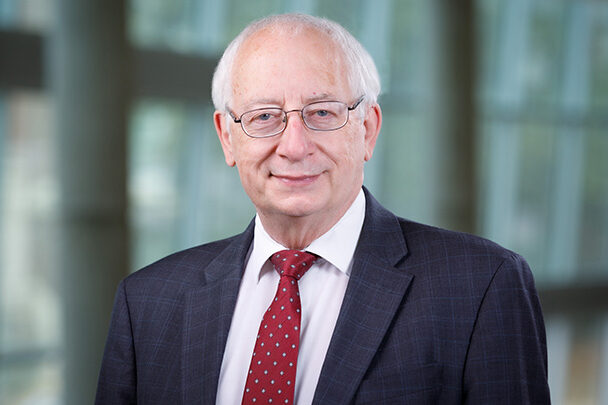During the Oct. 14 weekend, I had the opportunity to spend time with many of our returning alumni. This included a presentation and discussion session with the class of 1967 that featured a dynamic exchange on aspects of their experiences at UNMC that were critical to their successful careers.
This last week, along with many UNMC infectious disease and microbiology faculty, I have been facilitating small-group case discussion sessions for the M1 class during its Blood, Defense, and Invaders Block in the Phase 1 part of the curriculum.
Thus, in less than a week, I had the unique vantage point of seeing the impact of our medical school experience on the two ends of the medical education spectrum – those just beginning their careers as physicians and those who are at the end. Such an experience, of course, also lends itself to self-reflection.
One takeaway is an increased recognition as to the profound impacts that planned, but also unplanned, experiences as a medical student can have on the future direction of one’s career in medicine. Several alumni reflected upon how particularly impactful experiences and/or teachers they had early in their UNMC medical school experience led to a change in the specialty or nature of practice they chose to pursue.
Speaking with our M1 students, as well as working through the clinical case scenarios and questions designed to highlight the clinical application of the materials they were learning in class, I was struck by the enormous increase in the magnitude and complexity of material that current medical students are expected to master, relative to when I was a medical student a few years ago.
The myriad of new antibiotics that have been necessary to treat the increasing array of antibiotic resistance organisms and newly recognized/emerging infectious diseases can be overwhelming for an experienced clinician, let alone a first-year medical student. The same is true in nearly every other discipline. Although continued change is in part what makes medicine such an exciting field, it also can make it a daunting one to learn and maintain the knowledge and skills for clinical competency.
One skill we ask of our faculty and the curriculum committee: To glean, from the enormity of biomedical information, what information and skills are critical for medical students to master by the time they graduate from UNMC – vs. what is more appropriate for a later stage of training.
This is not an easy task. Presenting the complex in a manner that can be understood and retained by a medical student is what makes a good teacher great – as well as memorable decades later to our alumni as they recall their time at UNMC.
I am sure that I don’t say it enough, but let me express my personal thanks to our outstanding cadre of educators who abound at UNMC. Your impact on our students — and therefore the future of the medical profession — is profound but may not fully manifest itself for decades. Thank you for your dedication to the success of our students.
Finally, I would be remiss if I did not acknowledge this month an individual who also has had a profound impact on the success of the college over his almost 30 years on the campus. At the end of this month, Cory Shaw, chief operating officer at Nebraska Medicine, will be assuming the role of chief executive officer of UC Health, the clinical enterprise of the University of Cincinnati, my old stomping grounds.
In his many roles, including executive director of UNMC-Physicians and several roles at Nebraska Medicine, Cory has played an enormous part in shaping the academic health science system — supporting the educational and research missions of our college and providing the opportunity for our faculty to be the leading providers of high-quality care for the most complex patients in the region.
For me, Cory also has been a great partner who has provided outstanding insight, vision and commitment as we work for UNMC and Nebraska Medicine to continue their growth toward being among the premier academic health science centers in the country.
Congratulations to Cory on his new role, and we wish him the greatest success in the next stage of his career. Cincinnati is fortunate to have attracted such talent. Best wishes in the transition to a new institution and city, not the least of which will be acquiring an appreciation for Cincinnati “chili.” We are looking forward to working with Michael Ash, MD, as he steps into the Nebraska Medicine COO role.
